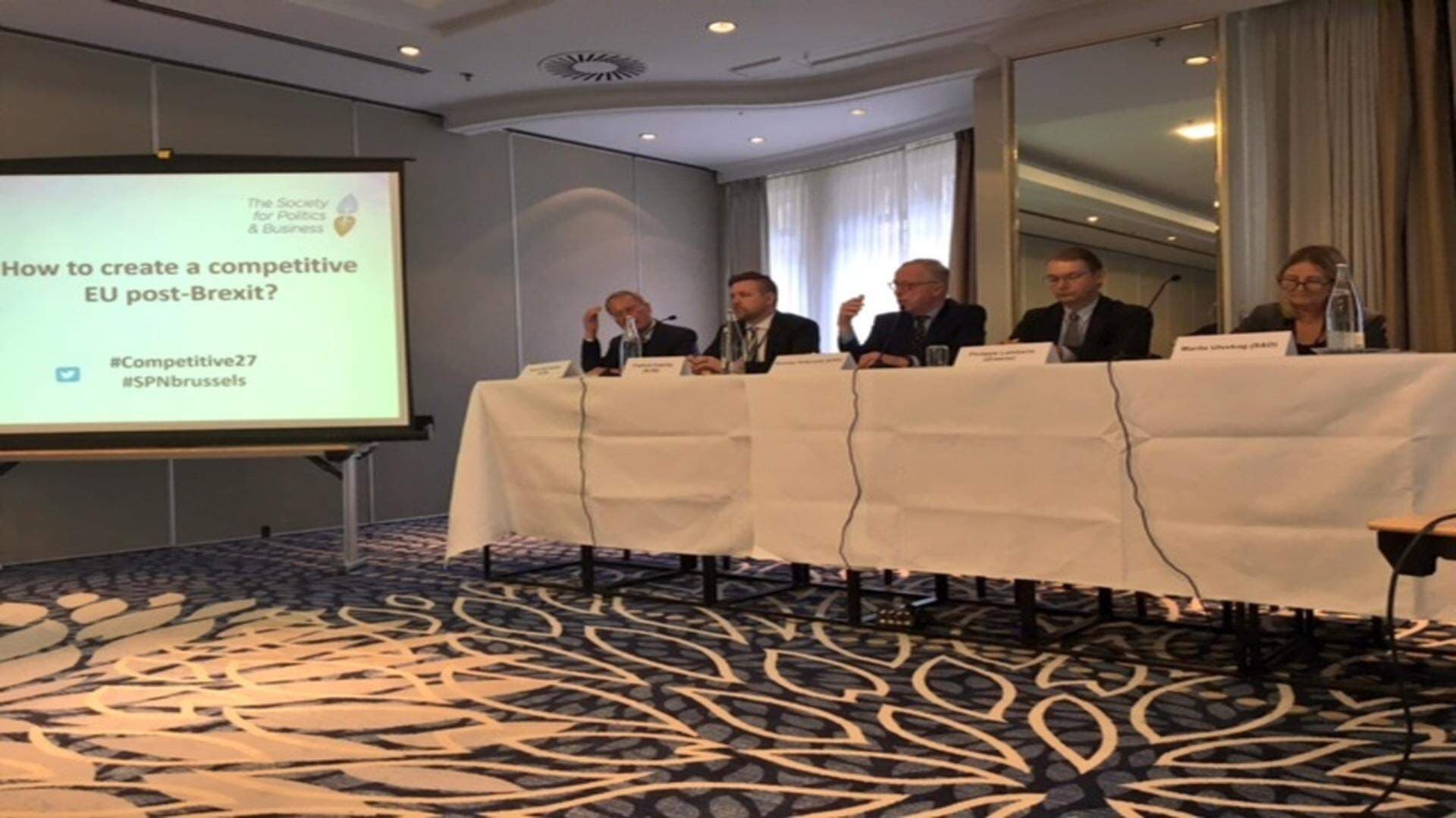Creating a competitive EU post-Brexit
The British government is expected to trigger Article 50 in a few months and the ultimate effect on both Britain and the European Union are still largely unknown. Since the British referendum on the exit of the EU, intense discussions on the future UK-EU relationship have unfolded. What is missing from the debate is an emphasis on how to make sure EU competitiveness is strengthened in this period of political uncertainty.

The British government is expected to trigger Article 50 in a few months and the ultimate effect on both Britain and the European Union are still largely unknown.
Since the British referendum on the exit of the EU, intense discussions on the future UK-EU relationship have unfolded. What is missing from the debate is an emphasis on how to make sure EU competitiveness is strengthened in this period of political uncertainty. Britain’s pending departure from the Union makes the competitiveness of the remaining 27 countries crucial and cause for a more focused debate on how to make sure EU stays competitive and increases its strength as a global economic player.
In order to address this important topic, the Swedish Society for Business and Politics, SPN organised a debate between representatives from five of the largest political groups in the European Parliament on how to ensure EU competitiveness in the aftermath of Brexit.
Among the speakers were Gunnar Hökmark (EPP, SE), Hans Olaf Henkel (ECR, DE), Fredrick Federley (ALDE, SE), Philippe Lamberts (Greens, BE) and Marita Ulvskog (S&D, SE).
Philippe Lamberts, Belgian MEP from the Greens, underlined in his intervention that the EU has a vested interest to reach a good deal with the UK.
- We must not be punitive, but it would not be conducive for a good relation if the UK decides to create a tax haven 30 km from EU. If we look around ourselves, we have political unrest and threats in all directions, including political leaders in both east and west dead set to divide Europe. This, however, should help to pull ourselves together. In order to rekindle trust in the European project we must also remember the founding ideas of peace, extension of democracy and shared prosperity. As for competitiveness, UK will be sorely missed. We need now to be even more outward looking. We need to focus on high value competitiveness and out-innovate our competitors. One important area is devising innovative solutions on how to fit our way of living within the biophysical limits of the planet, he concluded.
Hans Olaf Henkel (DE) from the ECR group thought that the euro was partly to blame for a dwindling trust in the EU project in the UK and a reason for Brexit.
- Why was Brexit possible? Partly, because Europe had to save the euro, we had to centralise and harmonise policies and socialise of public debt and politicians such as Nigel Farage could point at a Europe that Britons didn’t want. Brexit is a qualified disaster for Europe. EU will suffer much more than UK. How to become more competitive? By competition! Some say Europe has done too little and too late, but in fact EU has done much too much to harmonise and centralise. Europe is a continent of diversity. We need more competition at all levels and between small units. Less Europe and not so fast, concluded Henkel.
Marita Ulvskog (SE) from the S&D group also believed the EU had to strive for a good deal with UK and avoid being punitive.
- We must discuss and find compromises with UK and focus on factual issues. But I can see problems with the their position on migration. Europe cannot and should not backtrack on its position. We need free movement and open labour markets, but with xenophobic and what I call fascist views on the rise, we also need regulations, especially those that protect wages and working conditions, said Ulvskog.
Fredrick Federley (SE) from the liberal ALDE group:
- I don’t want the centralist, super-state EU as advocated by some. My vision is a multilevel federalist EU of 28 member states. I am in favour of a strong European constitution. As for the effects of the Brexit, they will be particularly noticeable in the area of research and innovation and the Horizon 2020 programme, where the UK participation is crucial. At a more practical level, we need to reinforce implementation of EU rules, also in situation when the rules are formally implemented but not applied. We also need to be better in capitalising on inventions and innovations, said Federley.
Gunnar Hökmark (SE) representing the EPP group argued for a good and close relation with a post-Brexit UK as possible.
- Europe today is doing better than ever. Thanks to the European Union, we live in freedom, the iron curtain is gone, we have a bigger internal market than ever, open borders, more competition and less regulation than ever. Globally the number of people living in relative poverty is drastically shrinking. It is not the fault of the EU that the Italian economy has been overspending for 40 years, that Italy, Romania and Bulgaria are at the bottom of the league when it comes to digitalisation, that bureacracy and red tape in UK is higher than the EU average? No, but people need a scapegoat and that scapegoat is often the EU. Looking to the future we must strive for a good European partnership with UK and to enhance our presence as global trade partner, said Hökmark.
The seminar was led by Gunnar Hökmark, Member of the European Parliament for the EPP-group and president of SPN, the Swedish Society for Business and Politics. It was held in the Thon Hotel Renaissance in Brussels and gathered around 50 participants from European institutions, business organisations, trade unions, NGO’s and other stakeholders.